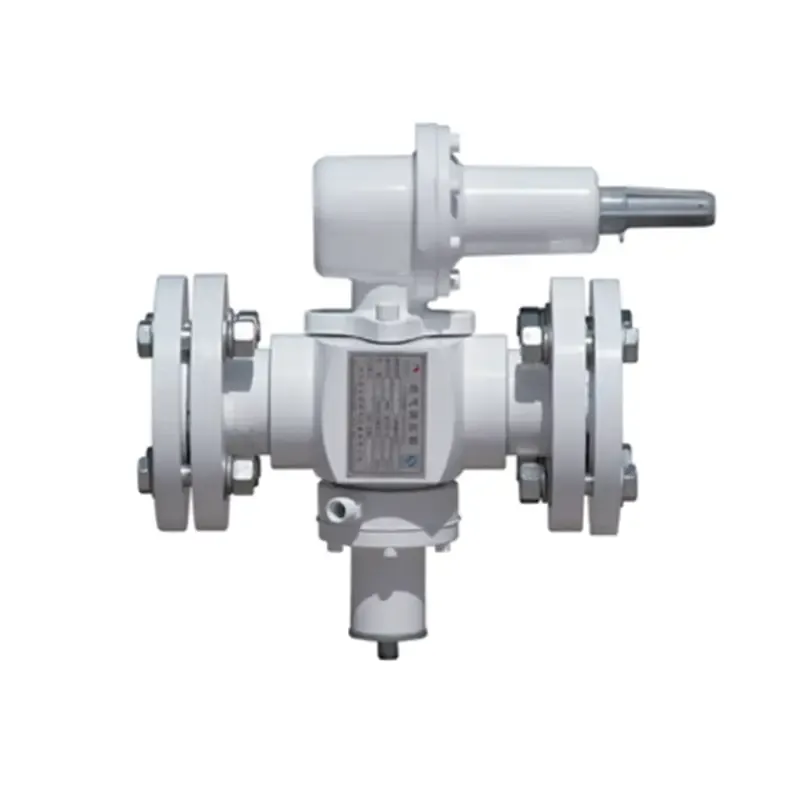
Nov . 26, 2024 09:25
Back to list
natural gas regulator
Understanding Natural Gas Regulators
Natural gas is a vital energy resource, powering homes, industries, and vehicles across the globe. However, the delivery of this gas requires careful management and regulation to ensure safety, efficiency, and reliability. One crucial component in this process is the natural gas regulator. This article will delve into what natural gas regulators are, their functions, types, and importance in the overall gas distribution system.
What is a Natural Gas Regulator?
A natural gas regulator is a device designed to control the pressure of gas flowing from the supply line into a home or industrial facility. The primary function of a regulator is to reduce the high pressure of the gas as it comes from the pipeline system to a lower, manageable level that can be used safely by end users.
The Function of Natural Gas Regulators
Natural gas arrives at consumers at high pressure, which is necessary for efficient transport through the long distance of pipeline systems. If this high-pressure gas were to be used directly in homes or businesses, it could cause dangerous situations including explosions, equipment damage, and inefficient gas usage. Therefore, regulators play a crucial role in
1. Pressure Reduction Regulators lower the high pressure of the incoming natural gas to a safe operating level. This ensures that gas appliances such as furnaces, water heaters, and stoves operate correctly and safely.
2. Pressure Regulation Beyond just reducing pressure, regulators maintain a constant output pressure despite fluctuations in the supply line pressure or variations in gas demand from appliances. This stability is essential for the safe functioning of gas-powered equipment.
3. Flow Control Some regulators also assist in controlling the flow rate of natural gas. This is particularly important in industrial applications where precise gas flow is required for manufacturing processes.
Types of Natural Gas Regulators
There are several types of natural gas regulators, each designed for specific applications
. The most common types include1. First Stage Regulators These are used in the primary step of pressure reduction in gas systems. They typically handle higher pressures and reduce the pressure to a secondary level suitable for further regulation.
natural gas regulator

2. Second Stage Regulators These are used downstream of the first-stage regulators to further reduce and regulate the gas pressure before it enters the home or commercial facility.
3. Line Regulators These regulators are installed in the gas distribution line to manage pressure throughout the pipeline, ensuring safe delivery of gas across varying distances.
4. Dome-loaded Regulators These regulators use an external force (dome pressure) to provide better flow regulation and maintain consistent output pressure under varying flow rates.
Importance of Natural Gas Regulators
Natural gas regulators are essential for several reasons
- Safety By controlling and reducing gas pressure, regulators help prevent accidents and ensure that gas is delivered safely to consumers.
- Efficiency Regulators ensure that gas appliances operate at the correct pressure, maximizing their efficiency and reducing waste.
- Regulatory Compliance Many regions have strict safety regulations governing gas distribution. Proper installation and functioning of gas regulators help utility companies comply with these regulations, ensuring public safety.
- Cost Effectiveness Efficient gas management translates to lower utility bills for consumers, as appliances operated at the correct pressure tend to have better performance and longevity.
Conclusion
Natural gas regulators are a critical component of the natural gas delivery system. They ensure that natural gas reaches homes and businesses safely, efficiently, and reliably. Understanding their function and importance not only enhances our safety but also emphasizes the intricate systems in place that allow us to benefit from this essential energy resource. As natural gas continues to play a significant role in meeting our energy needs, the technology and practices surrounding gas regulation will evolve to enhance safety and efficiency further.
Latest news
-
Safety Valve Spring-Loaded Design Overpressure ProtectionNewsJul.25,2025
-
Precision Voltage Regulator AC5 Accuracy Grade PerformanceNewsJul.25,2025
-
Natural Gas Pressure Regulating Skid Industrial Pipeline ApplicationsNewsJul.25,2025
-
Natural Gas Filter Stainless Steel Mesh Element DesignNewsJul.25,2025
-
Gas Pressure Regulator Valve Direct-Acting Spring-Loaded DesignNewsJul.25,2025
-
Decompression Equipment Multi-Stage Heat Exchange System DesignNewsJul.25,2025

